Iranian Police Seize Over 9,000 Cryptocurrency Mining Devices
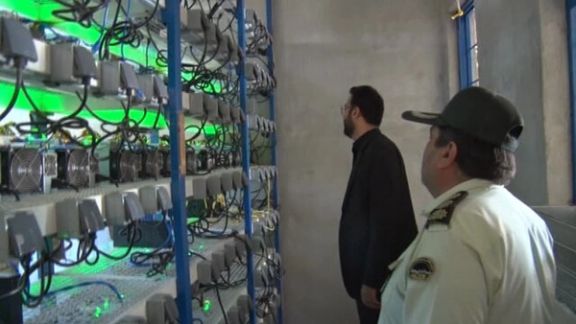
Iranian police have discovered and confiscated 9,404 illegal cryptocurrency mining devices in Tehran since the beginning of the Persian calendar year, which started on March 21.

Iranian police have discovered and confiscated 9,404 illegal cryptocurrency mining devices in Tehran since the beginning of the Persian calendar year, which started on March 21.
Kambiz Nazerian, head of Tehran Electricity Distribution Company, said on Monday that the energy-guzzling devices were discovered by inspectors in different districts of the capital.
In recent years, Iranian authorities have regularly announced the discovery of illegal cryptocurrency mining machines in different parts of the country. Many of these operations were based in public locations such as schools and mosques that receive free or heavily-subsidized electricity.
Cryptocurrencies are created through a process known as mining, where powerful computers compete with each other to solve complex mathematical problems. The process is highly energy-intensive, often relying on electricity generated by fossil fuels, which are abundant in Iran.
Iran has a complex relationship with crypto-currencies, which have helped hide various kinds of illicit trades banned by US and other European sanctions.
However, many reports in Iranian media have indicated that large scale crypto mining has been taking place by influential or well-connected networks and some Chinese companies have also been present in Iran using cheap, subsidized electricity.
A 2021 study found that 4.5 percent of global Bitcoin mining – worth around $1 billion then – was in Iran, leading to pressure on electricity supply in peak times and to repeated government assurances that the sector would be better regulated.

Saeed Afkari, the brother of the executed Iranian wrestler Navid Afkari, says their jailed brother Vahid has been threatened with death in prison in Shiraz.
Saeed Afkari said on social media that the warden of Adel-Abad Prison, in southwestern province of Fars, wants to reinstall a surveillance camera in Vahid’s solitary confinement cell for his protection.
Saeed said the warden told him that he has information that “some people” want to take advantage of the lack of a camera inside his cell and kill him. He expressed grave concern for the life of his brother.
Earlier reports said that Vahid had broken the security camera inside his cell a few times, and will not allow the authorities to set up new cameras.
Vahid Afkari was sentenced to 54 years and 6 months in prison and 74 lashes and is held in solitary confinement.
Amnesty International said in June 2021 that Vahid and Habib, another brother who has since been freed, were being subjected to torture and other ill-treatment in Adel-Abad prison in Shiraz, and were denied access to adequate healthcare, fresh air, telephone calls and face to face family visits.
Navid Afkari was arrested along with his brothers Habib and Vahid during protests in Iran in 2018 and was executed despite international campaigns to save his life.
He initially received a death sentence for an “act of war against God” for his participation in protests, the authorities later charged him and his brothers with the murder of a government employee.
According to the Oslo-based Iran Human Rights in September 2021, Shahin Naseri, a prisoner who testified that Navid Afkari was tortured to confess to the killing, died in custody in Greater Tehran penitentiary “in suspicious circumstances”.
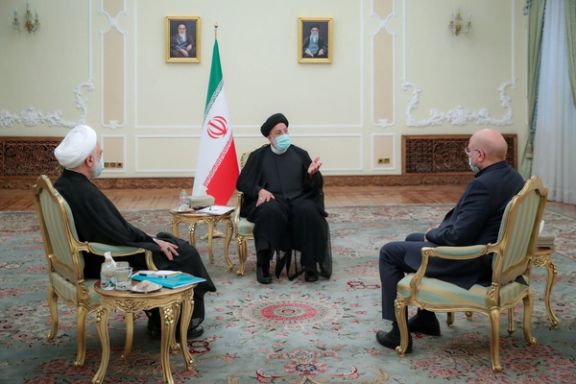
As desperate Iranians await a nuclear deal to see economic improvement, officials have begun telling the public that lifting US sanctions will not bring about a miracle.
While many Iranians including some lawmakers complain about growing poverty, officials such as IRGC Commander Hossein Salami insist that people's economic situation is satisfactory and "Iran can now send satellites to the space, crack atoms, use artificial intelligence and Quantum and Nano technologies and be a part of the digital age."
Meanwhile, information leaked from a meeting between chief nuclear negotiator Ali Bagheri and Iranian reporters indicate that Iran's oil revenue may soon be doubled if a nuclear deal is reached, and Tehran can find access to billions of dollars of its frozen assets in other countries.
Nonetheless, Iran's former nuclear chief Fereidoun Abbasi who is a member of parliament (Majles) says Iranians should not expect a positive impact on their livelihoods if a nuclear agreement is reached with the United States and sanctions lifted.
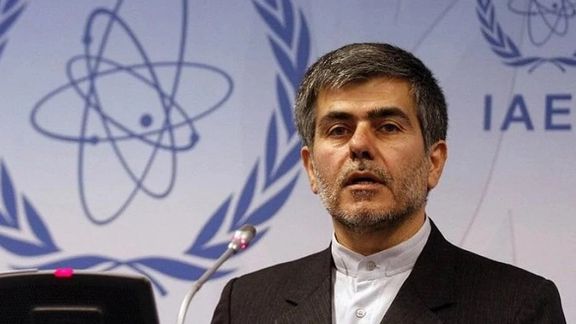
Probably based on insider information, Abbasi told Entekhab news website that the agreement with the United States does not include a clause about easing Iran's international banking operations. That probably is the reason why he thinks the agreement will not be followed by an economic breakthrough.
Earlier, former government Spokesman Ali Rabiei, and centrist commentator Saeed Leylaz had pointed out that financial corruption could still adversely affect Iran’s economy even after an agreement. Meanwhile, Iranian social media users speculate that Iran might spend the lion's share of any financial windfall on strengthening its militant proxy groups in the region.

Abbasi also noted that even with an agreement at hand, international companies may still avoid coming and investing in Iran fearing another US unilateral withdrawal from the deal.
On Sunday, hardline cleric Hossein Ebrahimi, a member of Tehran's notorious right wing clerical association told the press, "An agreement will not solve our problems. The people of Iran should be patient and help the government to solve the country's economic problems."
He added, "Although a large part of sanctions against Iran will be lifted as a result of the agreement, it does not mean that life will be a rose garden for Iranian people from the morning after. Certainly, many problems will be solved, but many challenges will also remain."
Ebrahimi particularly pointed out that prices which have skyrocketed are not going to come down because of the agreement. Another cleric had said earlier on Sunday that many things may become available in the market, but still at a high price.
Iran is facing a 54-percent annual inflation rate and food prices have risen by more than 100 in the past year.
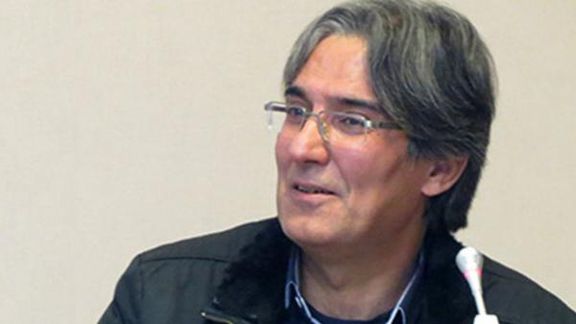
Meanwhile, in a report about the impact of an agreement on Iran's economy, Rouydad24 news website quoted economist Ehsan Soltani as saying that an agreement will not totally fix Iran's economy as there are many who benefit from the rising prices. He said those who benefit control the government and they are unlikely to allow the government to bring prices down.
Soltani said the Iranian government also benefits from the rise in prices as it collects inflation-induced tax from the lower and middle-classes.
Soltani also added that despite the probable real and psychological impact of an agreement, one should note that the main problem with the Iranian economy is financial corruption and the government inefficiency.
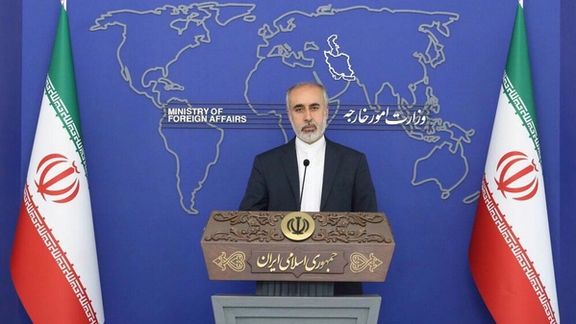
Iran’s foreign ministry has rejected rumors that the country has given up efforts to avenge IRGC commander Qasem Soleimani death for the revival of the 2015 nuclear deal.
During his weekly briefing on Monday, foreign ministry spokesman Nasser Kanaani said that the Islamic Republic’s position regarding the killing of Soleimani is clear, and that “the government and people of Iran will never forget the cowardly assassination of the great commander by the American government.”
Soleimani, commander of the Revolutionary Guards (IRGC) extra-territorial Quds Force, was killed in Baghdad along with nine others in 2020 by a drone strike ordered by then-President Donald Trump. The Qods Force under Soleimani became deeply involved in the conflicts in Syria and Iraq. Trump claimed that the general, who was Iran’s main operative in the Middle East, was killed because he was planning attacks on US troops.
In March, Iran said its judiciary would start the trial for all those involved in the killing of IRGC commander, including Trump, former secretary of state Mike Pompeo, and former CENTCOM chief Kenneth McKenzie. A lot of high-ranking Iranian military personnel and political figures, including the Supreme Leader, have promised revenge for the Soleimani's targeted killing.
The case for the revenge against the killers of Soleimani cannot be forgotten and it will not be amenable to compromise and reconciliation, Kanaani said, noting that the Islamic Republic will exhaust all of its capabilities “to bring the killers of the general to justice.” He added that Iran acts with seriousness in this regard and that the issue is not related to the nuclear negotiations.
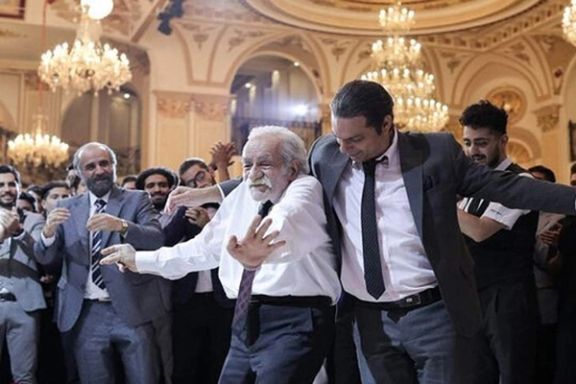
Iran's minister of culture and Islamic guidance has threatened filmmakers and actors with a work ban if they criticize Islamic Republic entities and officials.
Iran’s Intelligence Minister Esmail Khatib had also warned government’s critics on Thursday against writing statements and open letters to criticize the current situation in the country.
In a program aired by the state broadcaster (IRIB) Saturday evening, the minister of culture Mohammad-Mehdi Esmaili said Iranian films cannot participate in foreign film festivals if they are not authorized to be shown in Iran.
Films, music and books go through a rigorous censorship process in Iran and often have to change and re-write segments to be accepted by religious-political censors.
“Everything has been carefully considered and there is no room for leniency,” Esmaili said, adding that “the future of those who act against our national interests, speak against the Iranian people, and take advantage of the cruel sanctions against the Iranian people, is clear.”
The minister also accused the government of former President Hassan Rouhani of too much leniency. “The former president said we should not force people to go to heaven but in an Islamic system we have the duty to work for people’s benefit.”
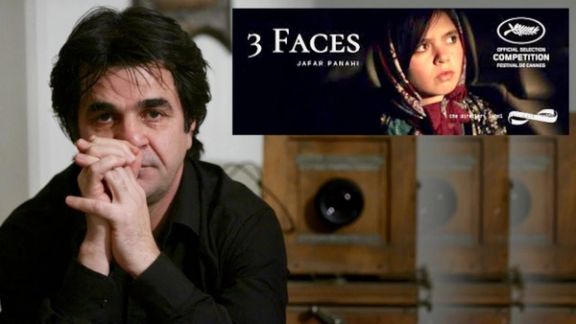
Esmaili defended the ban on filmmakers and actors and insisted that it was not against the law. Authorities will continue doing the same and will not surrender to media pressure or the artists’ protests, he stressed.
The ministry recently suspended Leila’s Brothers, a film by renowned filmmaker Saeed Roustayi (also spelled as Roustaee), due to its unauthorized participation in the Cannes Film Festival.
“I hope my film will be allowed to be shown in Iran, but I will not surrender to censorship unlike in the case of Just 6.5,” Roustayi told Iran International on the sidelines of the festival. “Censorship ruined that film. This time I prefer my film is banned rather than censored [for viewers in Iran].”
Just 6.5 (2019) was nominated for the César Award for Best Foreign Film in 2021 while Leila's Brothers (2022) was nominated for the Palme d'Or at the 2022 Cannes Film Festival.

Informed sources told Iran International earlier this week that that the intelligence ministry and the ministry of Islamic guidance have threatened more than 100 film industry figures to withdraw their signatures from a May statement titled “Lay Down your Gun” or be banned from working.
The statement by filmmakers had urged military and security forces not to use force protesters during anti-government demonstrations.
Dissident filmmakers Mostafa Aleahmad and Mohammad Rasoulof who had prepared the statement were arrested and others were pressured to revoke their signatures soon after it was issued. Award-winning film director Jafar Panahi was sent to Evin prison to serve a previous six-year sentence after being arrested for protesting the detention of Aleahmad and Rasoulofoutside Tehran’s Evin Prison.
Informed sources have told Iran international that next week authorities will release a list of artists who are banned from work. Authorities in the past few weeks have informed ten documentary filmmakers of a ban on leaving Iran and several actors and filmmakers including actress Taraneh Alidoosti, film editor and member of the Academy of Motion Picture Arts and Sciences Haideh Safiyari, actor Navid Mohammadzadeh, Iranian-born Afghan actress Fereshteh Hosseini, and Saeed Roustayi have reportedly been banned from working.
“We haven’t committed any crimes and there has been no trial. What are you banning us from?” Alidoosti wrote in an Instagram post on August 17.
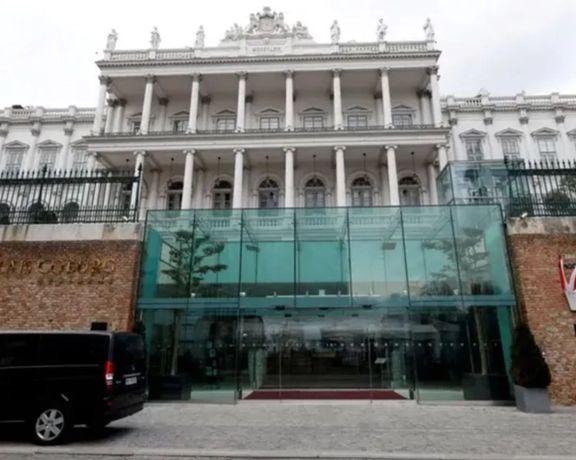
The leaders of Western powers engaged in Iran's nuclear talks discussed efforts to revive the 2015 JCPOA accord, the White House said on Sunday in a statement.
In addition to the Russian invasion of Ukraine, “they discussed ongoing negotiations over Iran’s nuclear program, the need to strengthen support for partners in the Middle East region, and joint efforts to deter and constrain Iran’s destabilizing regional activities," the White House said in its description of the call among the four allies. It did not provide any further details about the issues concerning the Middle East.
US President Joe Biden, British Prime Minister Boris Johnson, French President Emmanuel Macron and German Chancellor Olaf Scholz participated in the call.
Last week, the European Union and United States said they were studying Iran's response to what the EU described as a "final" proposal to restore the deal.
Earlier in the day, Mohammad Marandi, the de facto spokesman for Iran's nuclear negotiating team, said that Tehran has received considerable concessions from Washington in the nuclear talks.
A leaked report from Tehran on Friday, August 19, said that Iran’s chief nuclear negotiator Ali Bagheri-Kani had given local reporters in a closed-door briefing a list of “concessions” obtained from the United States.
These included exempting a range of Iranian government-linked entities from sanctions imposed for their role in Iran’s terror-related activities, and a pledge not to sanction any entity for links with the Revolutionary Guard.